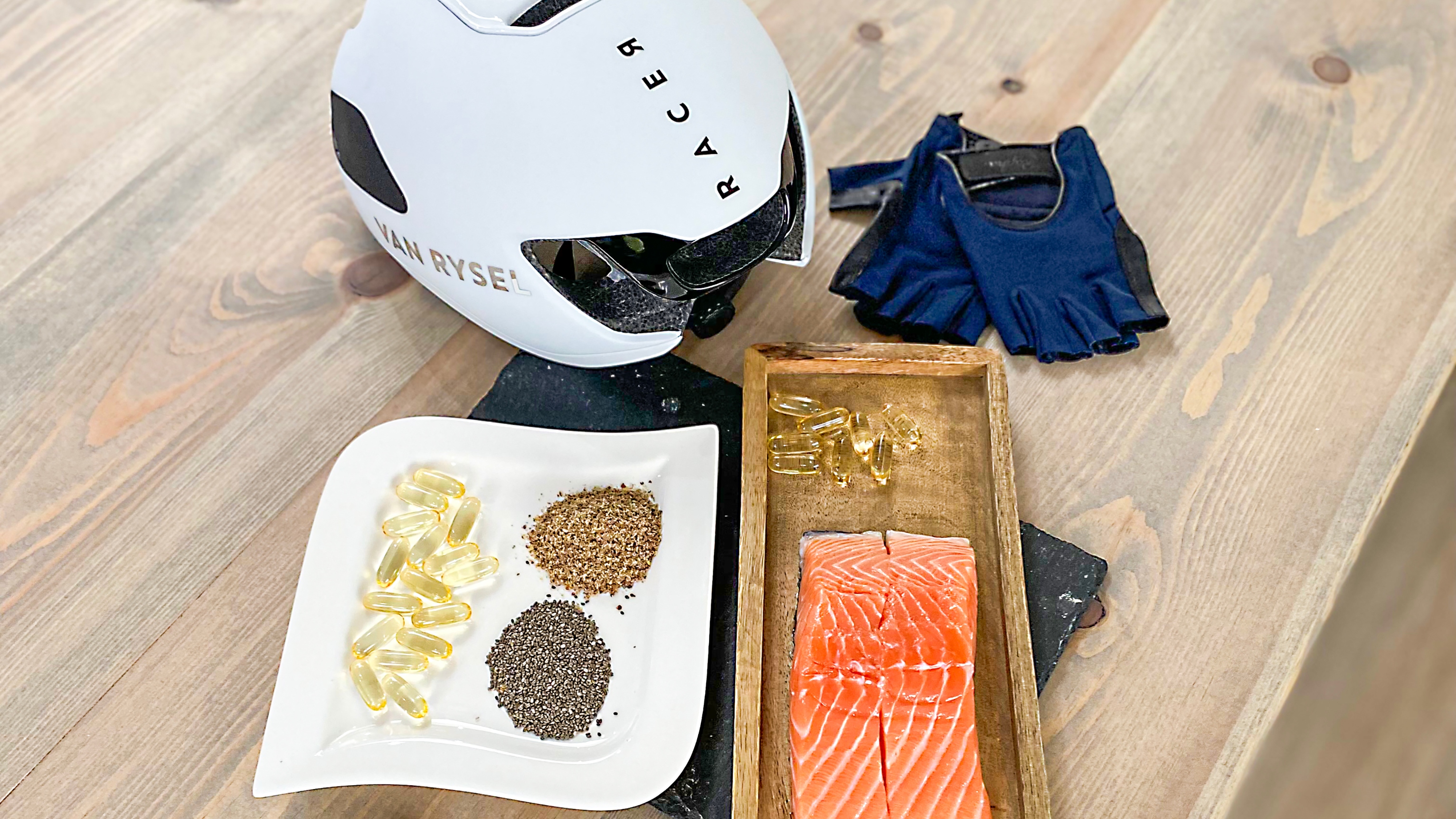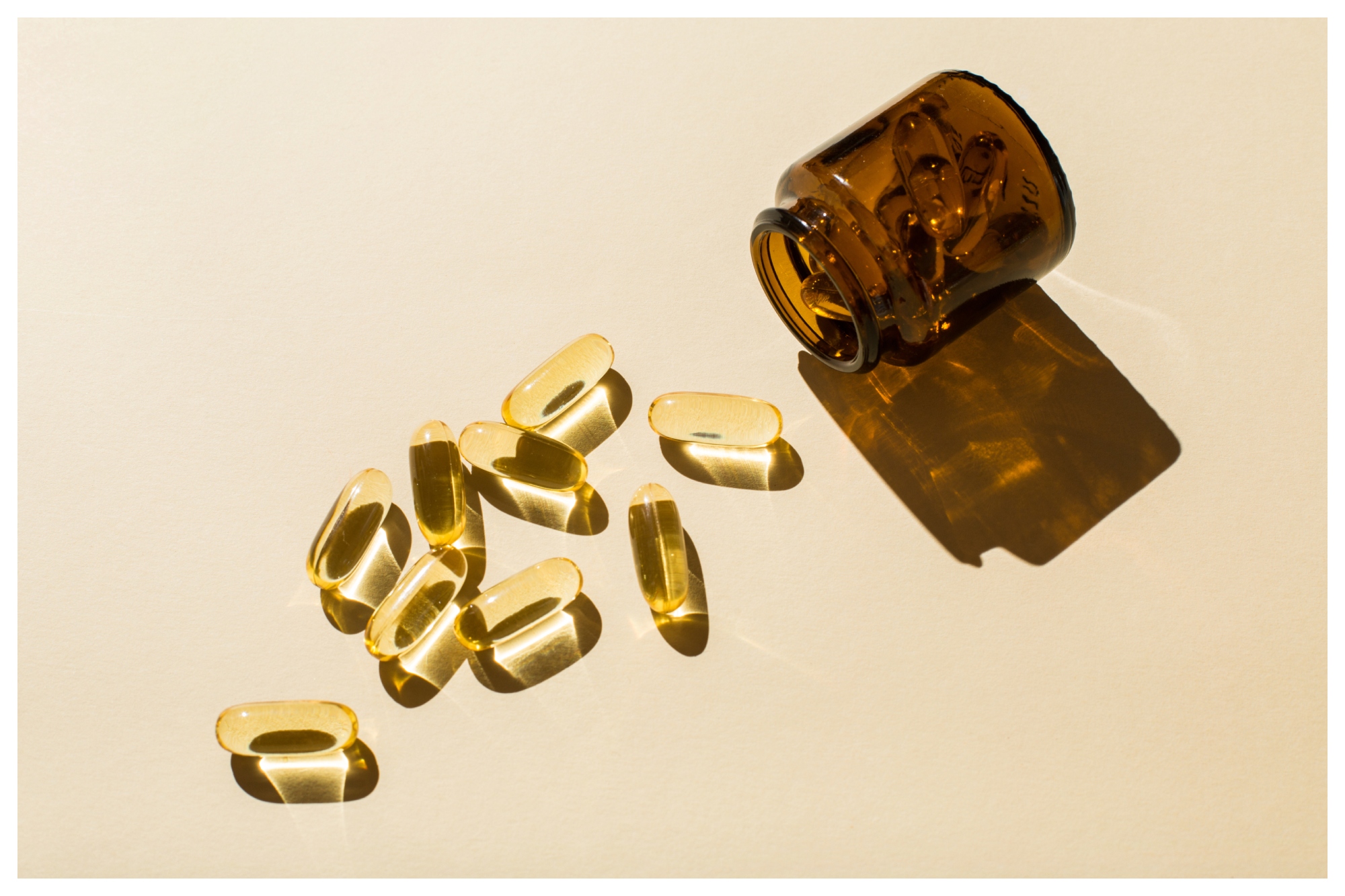Will consuming more fish oil make you a better cyclist?
Cod liver oil is an age-old supplement, but its key ingredient is still very relevant, discovers Rob Kemp


Omega-3 is a polyunsaturated fatty acid (PUFA) essential for human health, obtained from oily fish and certain plant sources. It supports anti-inflammatory functions, prevents blood clots and helps widen blood vessels. Studies in the 1970s of Greenland Eskimos, who recorded low rates of coronary heart disease, asthma and type-1 diabetes found that the Eskimos’ superpower lay in the PUFA-packed oily fish they ate. Omega oils have since become a highly regarded food supplement, but what can they do for your cycling?

Lynsey James is practical lead in anatomy, nutrition and physiology at Loughborough University. She has worked in applied sports science, academia and research, and holds a PhD in omega-3 and sports performance.

Mayur Ranchordas is professor of applied human nutrition for sport and exercise at Sheffield Hallam University. He researches how nutrition and supplements enhance performance and recovery in athletes.
Are Omega-3 oils particularly good for cyclists?
PRO RIDER COMMENT: MAEVE PLOUFFE
“I prefer sourcing nutrients from whole foods but make exceptions for supplements like omega-3s, mindful of their health benefits, particularly for hormone and mood regulation. As a female endurance athlete, I face menstrual irregularities during heavy training. In blood tests, my omega-3s, which are precursors to hormones like oestrogen and progesterone, have been low. I hope that supplementing here can help support healthy hormone levels.
“I currently incorporate about one gram of omega-3s daily through a plant-based DHA and EPA capsule derived from algae, which is more sustainable than fish oil from an environmental perspective. Although I try to include omega-3s in my diet through sources like oily fish, it can get expensive, and with so much travel, access to consistent dietary omega-3s can greatly fluctuate.”
Australian pro rider Maeve Plouffe rides for Continental team Hess
“Consuming omega-3 PUFAs is linked to improvements in cognition and mood, cardiovascular dynamics, muscle recovery and inflammation,” says researcher Lynsey James. Omega-3 PUFAs have also been shown to exert positive effects on cardiovascular disease, rheumatoid arthritis and chronic inflammation. “There’s some evidence that athletes may need a higher omega-3 intake compared to the general population,” adds Professor Mayur Ranchordas, an applied human nutrition specialist. “Their anti-inflammatory properties may help reduce muscle soreness and speed up recovery, supporting muscle cell regeneration and repair.”
While research suggests that omega-3 PUFAs may lower the risk of arrhythmia – irregular heart rhythm – by stabilising heart cell membranes, the evidence is not entirely conclusive.
Some studies show a possible reduction in arrhythmia risk, others show even a slight increase in atrial fibrillation risk.
“There are links to improved memory, attention and reactions,” adds Ranchordas, “but only in individuals with already low levels of omega-3. Most of the studies also show that these effects are more pronounced in older adults. The evidence for omega-3 in slowing cognitive decline is stronger.” There may be immunity benefits too. “There seems to be moderate evidence for omega-3 reducing chronic inflammation and improving immune defences,” says Ranchordas, “but it cannot prevent infections. When it comes to mood, omega-3 has been shown to reduce symptoms of depressive disorders and excessive stress responses by regulating cortisol levels.”
What does the research say on fish oil for cyclists?

There is no consensus on the impact of omega-3 PUFA supplementation on cycling endurance performance. “Studies using time trials have shown no effects from daily omega-3 supplementation, though only one included trained cyclists,” says James. “Factors such as the type of performance test – workload or time-based – dosing strategy, and low omega-3 doses of less than 1.8g per day may explain the inconclusive results, as at least 2g per day is needed for an anti-inflammatory effect.”
This lack of hard proof does not mean there is no benefit. “Despite the lack of effect of omega-3 PUFAs directly on performance, the literature indicates the potential for improvements in physiological markers associated with endurance performance,” explains James. “These include a trend for increased time to fatigue and a reduction in submaximal oxygen uptake following omega-3 PUFA supplementation.” In layman’s terms, after taking omega-3 supplements, the amount of oxygen the body needs to perform moderate exercise may slightly decrease. “The effects of omega-3 PUFAs on heart rate are also equivocal.” Some studies show a reduction in submaximal heart rate (HR) while others report no effect on submaximal or maximal HR.
Get The Leadout Newsletter
The latest race content, interviews, features, reviews and expert buying guides, direct to your inbox!
How to reap the benefits of fish oil
“Humans are unable to synthesise the omega-6 PUFA linoleic acid (LA) and the omega-3 PUFA alpha-linolenic acid (ALA). Instead, we rely on these essential fatty acids to have entered the food chain from plants,” says James. But the conversion of ALA to docosahexaenoic acid (DHA) and eicosapentaenoic acid (EPA) is not easy, with only a small percentage of ALA being converted to DHA and EPA. “I always like using a food-first approach,” adds Ranchordas. “The main dietary sources of EPA/DHA are oily fish such as mackerel, salmon and sardines, and fish oil supplements.
What are the limitations of fish oil for cyclists?
“Be aware that omega-3 and omega-6 PUFAs are competitively metabolised and perform opposing functions in the human body,” says James. Basically, omega-3 and omega-6 fats are both essential but compete with each other in your body, and they have opposite effects. Omega-3s help reduce inflammation, while omega-6s can promote it and cause blood clotting. Keeping a good balance between the two is important for your health.
It's also worth being aware that, according to the UK National Health Service (NHS), oily fish usually have higher levels of pollutants than other types of seafood. Girls, women who are planning a pregnancy or may have a child one day, and women who are pregnant or breastfeeding are advised to limit intake to no more than two portions each week.
Fish oil and cycling performance: the bottom line
Despite there being no direct performance improvements, omega-3 supplementation shows potential for enhancing physiological markers such as increased time to fatigue and improved cycling economy. The effects on heart rate are inconsistent, varying across studies. “Try to incorporate at least two portions of oily fish per week into your diet,” says James. “If you are not a fish lover, then take omega-3 supplements with a high proportion of EPA and DHA.” A dose of 2g a day is sufficient, but you may want to increase this up to 6g per day during periods of intensive training.

Thank you for reading 20 articles this month* Join now for unlimited access
Enjoy your first month for just £1 / $1 / €1
*Read 5 free articles per month without a subscription

Join now for unlimited access
Try first month for just £1 / $1 / €1

Rob Kemp is a London-based freelance journalist with 30 years of experience covering health and fitness, nutrition and sports sciences for a range of cycling, running, football and fitness publications and websites. His work also appears in the national press and he's the author of six non-fiction books. His favourite cycling routes include anything along the Dorset coast, Wye Valley or the Thames, with a pub at the finish.
You must confirm your public display name before commenting
Please logout and then login again, you will then be prompted to enter your display name.
-
 'It took everything' - Puck Pieterse outclimbs Demi Vollering to win La Flèche Wallonne
'It took everything' - Puck Pieterse outclimbs Demi Vollering to win La Flèche WallonneDutch 22-year-old shows Classics pedigree with first one-day victory
By Tom Davidson
-
 Tadej Pogačar flies to dominant victory at La Flèche Wallonne
Tadej Pogačar flies to dominant victory at La Flèche WallonneSlovenian takes second win at Belgian classic ahead of Kévin Vauquelin and Tom Pidcock
By Tom Thewlis